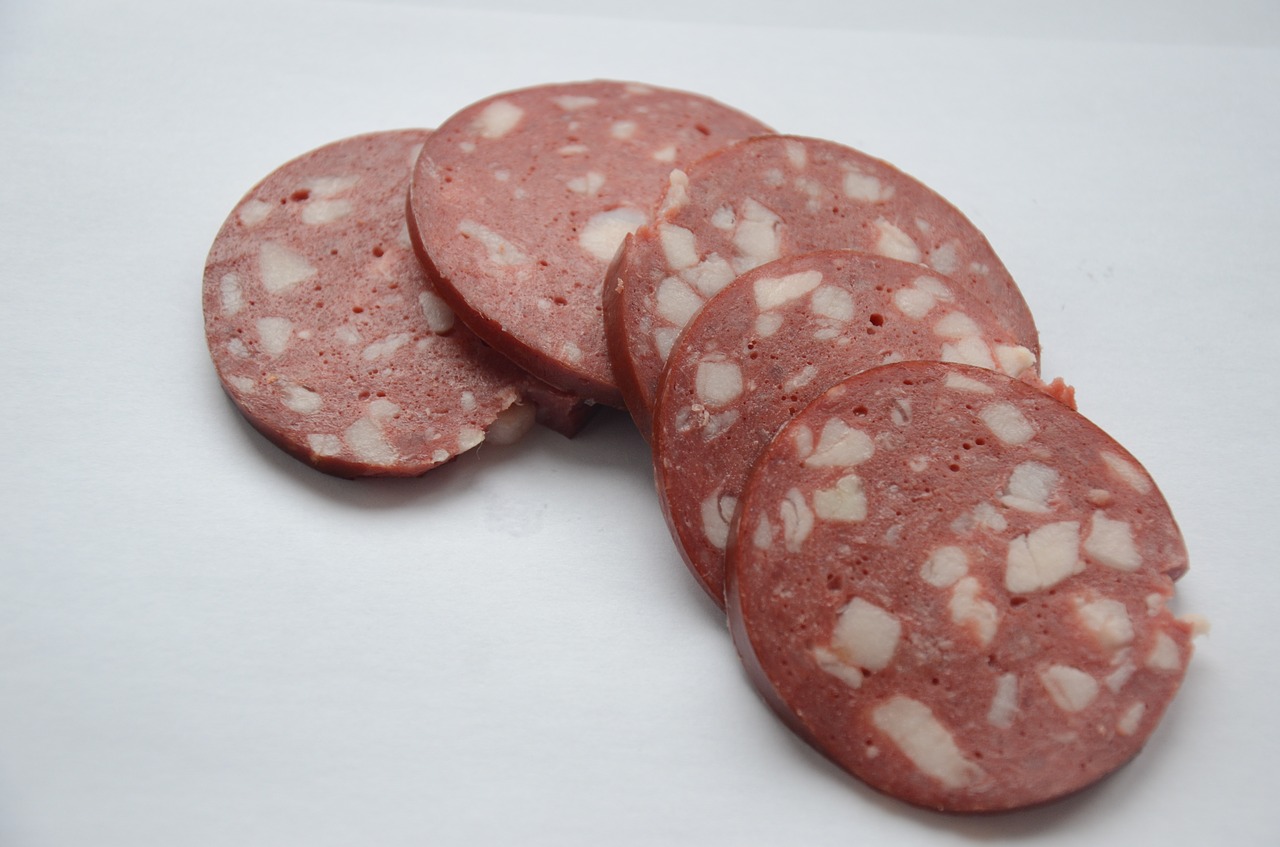Nitrates and Nitrites
Nitrates, Nitrites and Alzheimer's
A chemical reaction between proteins and nitrites form a harmful class of chemicals called nitrosamines. Nitrites are added to meat as a preservative in order to prevent a bacteria that produces botulinum toxin. When oxidized, heated or exposed to acid (such as in the stomach), nitrites react with chemical groups on proteins to form nitrosamines. More than 300 nitrosamines have been tested and 90% of them have been found to cause cancer.1
Nitrates (with an “ate” instead of “ite”) are also harmful because bacteria in our bodies convert nitrates to nitrites. Human exposure can also occur through nitrate containing fertilizer used on food crops. It is estimated that 85% of our nitrate exposure comes from vegetables (especially potatoes and other root vegetables). Nitrates can also leach out of the soil contaminating drinking water and irrigation water. Because vegetables tend to have less protein than meats and because the bacteria conversion of ingested nitrates to nitrites is about 5%, the reaction that causes nitrosamines is less common in vegetables than processed meats, but it may still be a concern. Organic farms do not use nitrate containing fertilizer and therefore buying organic may be worth the extra cost.1
Fried bacon, cured meats, hot dogs, jerky, pate, smoked salmon, beer, cheese products, and nonfat dry milk are some of the main ways that people are exposed to nitrosamines. Avoiding these foods and beverages would limit your exposure to carcinogenic substances. It is undeniable that nitrates and nitrites are bad for a wide variety of reasons, but despite the fact that many people have argued that they are a contributing cause of Alzheimer’s, I am not sure if the data agrees.
Meat and Alzheimer's Studies
Meat itself does not appear to have detrimental effects. A systematic review and meta-analysis in 2020 looked at 29 different studies that examined the effect of meat on cognition. Findings were inconsistent. The majority of the studies (21 out of 29) found that meat was not associated with cognitive decline or Alzheimer’s. Three studies found that meat had a positive effect on cognition and the remaining five studies found a negative effect. The term meat is pretty vague as there are obviously all types of different meat, from chicken to veal to steak. Most studies simply grouped meat into a single variable. Of the studies that divided meat into separate groups, such as chicken and red meat, none of them showed an association (positive or negative) with meat consumption and cognition.2
Of the 29 studies only five could be combined and used for a meta-analysis. The meta-analysis determined that there was a potential positive effect of meat consumption, which was consistent with a previous review, but the authors still advised to use that information with caution considering a variety of confounding factors that could have influenced the results.2
Processed Meat, Nitrates, Nitrites and Mortality
A very interesting study that was not included in the systemic review mentioned above, was conducted using over 500,000 elderly individuals. Using a questionnaire, the researchers were able to gauge the participants consumption of total meat, processed and unprocessed red meat (beef, lamb, and pork) and white meat (poultry and fish) as well as heme iron, and nitrate/nitrite from processed meat. Sixteen years later, the researchers looked at nine different causes of death (heart disease, cancer, stroke, respiratory disease, diabetes, infections, chronic kidney disease, chronic liver disease and last but not least, Alzheimer’s disease) and correlated the cause of death with consumption of meat.3
The interesting thing about that study was the Alzheimer’s data. Higher consumption of red meat correlated to increased deaths for all diseases except Alzheimers. You can see the data below. The researchers divided the participants into fifths based on how much red meat they ate, with “5” being the group of people who ate the most red meat and “1” being the group of people who consumed the least amount of red meat. You can see for yourself that red meat consumption is really bad.3
Cause of Death by Fifths of Red Meat Intake3 | |||||
Cause of Death | 1 (n=107 393) | 2 (n=107 394) | 3 (n=107 394) | 4 (n=107 394) | 5 (n=107 394) |
Total deaths (n=128 524) | 22 075 | 23 765 | 25 532 | 27 321 | 29 831 |
Cancer (n=45 740) | 7869 | 8510 | 9228 | 9858 | 10 275 |
Heart disease (n=34 723) | 5864 | 6291 | 6745 | 7345 | 8478 |
Respiratory disease (n=10 202) | 1394 | 1812 | 2142 | 2241 | 2613 |
Stroke (n=5837) | 1128 | 1131 | 1178 | 1245 | 1155 |
Diabetes (n=3717) | 504 | 576 | 687 | 845 | 1105 |
Infections (n=2691) | 474 | 505 | 513 | 589 | 610 |
Chronic kidney disease (n=1942) | 308 | 328 | 389 | 417 | 500 |
Chronic liver disease (n=1133) | 162 | 174 | 239 | 245 | 313 |
Other causes (n=20 431) | 3830 | 4002 | 4004 | 4172 | 4423 |
Alzheimer’s disease (n=2108) | 542 | 436 | 407 | 364 | 359 |
Death by Alzheimer’s actually decreases with increased red meat consumption. Crazy, huh? They also found that increasing amounts of nitrates and nitrites had no effect on Alzheimer’s deaths while deaths by other diseases tended to increase. While these results are contradictory to the commonly held belief that red meat (by means of saturated fat) and nitrates/nitrites found in processed meat contribute to Alzheimer’s, it could be that Apoe4 carriers who are susceptible to the deleterious effects of saturated fat die of heart disease or some other disease before dying of Alzheimer’s. This conclusion is supported by examining the data on processed white meat (which included both poultry and fish for this study). Alzheimer’s was the only disease in which death rates increased with increased consumption of processed white meat. White meat is considered healthier than red meat and therefore it could be possible that the effects of nitrates and nitrites on Alzheimer’s were better able to be seen in the processed white meat data because these effects were no longer obscured by the increased deaths of all other diseases that occured when eating red meat.3
Nitrate, Nitrite and Cognition Studies
While the effects of nitrates and nitrites have been shown in some studies to have negative effects on cognition in vivo, randomized clinical trials have actually been conducted to see if there were any positive cognitive effects of nitrates and nitrites. Using 30 healthy men and women, a randomized clinical trial tested the effects of nitrate-rich spinach and flavonoid-rich apples on cognition. The researchers saw that nitrate and nitrite concentrations in the body were elevated in the groups who ate the nitrate-rich spinach but there was no effect, positive or negative, on cognition. The reason why a nitrate-rich food was tested in a randomized clinical trial was because of a relatively recent idea that nitric oxide (NO) could have positive effects in regards to preventing Alzheimer’s.3,4
The Benefits of Nitric Oxide (NO)
Nitric oxide (NO) can function as a vasodilator, neuromodulator and immune system regulator, all of which could have positive effects on brain function. NO is produced in the body with the help of several different proteins (NOS proteins). While there is debate about whether or not NO is neuroprotective or neurotoxic, it is clear that high concentration of NO leads to the production of peroxynitrite (ONOO−) which is a highly reactive oxidizing agent and toxic to cells.5
In the specific foods section, we discussed beets as being protective against Alzheimer’s. Beets contain high amounts of nitrites which are converted to NO which in turn might be able to exert a protective effect against Alzheimer’s. But, we already mentioned that nitrites can produce nitrosamines, which are toxic, right? Yes, but vegetables, like spinach and beets, can contain high amounts of nitrites and nitrates but also contain compounds that prevent the formation of nitrosamines, such as vitamin C, polyphenols, and fiber. Thus, vegetables with high levels of nitrates and nitrites tend to produce beneficial NO rather than the detrimental nitrosamines. With that in mind, if you do choose to consume processed meat, it would be wise to do so in moderation and to include fruits and vegetables with high amounts of vitamin C, polyphenols, and fiber so that NO is generated rather than nitrosamines. Meat manufacturers also add vitamin C (ascorbic acid) to inhibit nitrosamine production.6,7,8
Oral bacteria is critical in converting nitrates into nitrites which can then be used as a precursor or NO generation. Although this process has long been known to generate nitrosamines, more recent studies have emphasized the health promoting capacity of this bacteria. The vasodilatory capabilities of NO and the intake of nitrates can reduce blood pressure in humans. One study showed that by reducing oral bacteria by using mouth wash, oral nitrite production was decrease by 90%, NO production by 25% and resulting in a blood pressure increased.9
Do Nitrates and Nitrites Increase the Risk of Alzheimer's?
Many Alzheimer’s experts believe that processed meat is a risk, however there is not a whole lot of evidence using human data to support that position. However, the study we discussed above showing an increase of Alzheimer’s death with increasing consumption of processed white meat but not unprocessed white meat might justify cause for concern. There is a need to do further research to clarify these issues.
As we saw from the data mentioned above, red meat obviously is bad for your health. If you prefer to die of some other disease other than Alzheimer’s, consume as much red meat as you can and you’ll probably die before ever reaching an age that would result in death by Alzheimer’s. Processed meat has had a bad rap because of the added nitrites, but the data showing Alzheimer’s risk is pretty weak. On the other hand, the randomized clinical trial of the effect of nitrate-rich beet juice on cognition, shows the positive effects of nitrate and potentially nitrite. Undoubtedly, meat has vitamins, minerals and nutrients that are critical which is a reason to keep meat in your diet. Rather than nitrites, I think the biggest risk with red meat is the amount of saturated fat which would be a greater problem for Apoe4 carriers than non-carrier. Increased cholesterol is also a consideration. The effect of cholesterol on Alzheimer’s is still an open question, but Apoe4 carriers tend to have higher cholesterol levels and therefore it might be wise to limit cholesterol intake to stay within normal ranges.
Harmful Food Sections
Diet
Apoe4 carriers metabolize food differently than non-carriers which is a contributing factor to Alzheimer's. Which diet can reduce your risk?
Supplements
Randomized clinical trials using Alzheimer's patients have shown positive effects from a variety of supplements. Click and take a look.
Sleep
Adequate sleep is a critical component of preventing cognitive decline. Deep sleep is particularly important for Apoe4 carriers.
Exercise
The scientific data is clear, exercise has positive effects on Alzheimer's disease. But what type of exercise has the biggest effect?
Socialize
Humans are social creatures. Socializing seems like an unusual way to fight Alzheimer's, but it is critical. See the data for yourself.
Nitrate and Nitrite References on this Page:
- de la Monte SM, Neusner A, Chu J, Lawton M. Epidemilogical trends strongly suggest exposures as etiologic agents in the pathogenesis of sporadic Alzheimer’s disease, diabetes mellitus, and non-alcoholic steatohepatitis. J Alzheimers Dis. 2009;17(3):519-29. doi: 10.3233/JAD-2009-1070. PMID: 19363256; PMCID: PMC4551511.
- Zhang H, Hardie L, Bawajeeh AO, Cade J. Meat Consumption, Cognitive Function and Disorders: A Systematic Review with Narrative Synthesis and Meta-Analysis. Nutrients. 2020 May 24;12(5):1528. doi: 10.3390/nu12051528. PMID: 32456281; PMCID: PMC7285210.
- Etemadi A, Sinha R, Ward MH, Graubard BI, Inoue-Choi M, Dawsey SM, Abnet CC. Mortality from different causes associated with meat, heme iron, nitrates, and nitrites in the NIH-AARP Diet and Health Study: population based cohort study. BMJ. 2017 May 9;357:j1957. doi: 10.1136/bmj.j1957. PMID: 28487287; PMCID: PMC5423547.
- Bondonno CP, Downey LA, Croft KD, Scholey A, Stough C, Yang X, Considine MJ, Ward NC, Puddey IB, Swinny E, Mubarak A, Hodgson JM. The acute effect of flavonoid-rich apples and nitrate-rich spinach on cognitive performance and mood in healthy men and women. Food Funct. 2014 May;5(5):849-58. doi: 10.1039/c3fo60590f. PMID: 24676365.
- Balez R, Ooi L. Getting to NO Alzheimer’s Disease: Neuroprotection versus Neurotoxicity Mediated by Nitric Oxide. Oxid Med Cell Longev. 2016;2016:3806157. doi: 10.1155/2016/3806157. Epub 2015 Nov 30. PMID: 26697132; PMCID: PMC4677236.
- Tannenbaum SR. Preventive action of vitamin C on nitrosamine formation. Int J Vitam Nutr Res Suppl. 1989;30:109-13. PMID: 2507690.
- Swartz MC, Allen K, Deer RR, Lyons EJ, Swartz MD, Clifford T. A Narrative Review on the Potential of Red Beetroot as an Adjuvant Strategy to Counter Fatigue in Children with Cancer. Nutrients. 2019 Dec 7;11(12):3003. doi: 10.3390/nu11123003. PMID: 31817919; PMCID: PMC6949985.
- Moon HK, Yang ES, Park JW. Protection of peroxynitrite-induced DNA damage by dietary antioxidants. Arch Pharm Res. 2006 Mar;29(3):213-7. doi: 10.1007/BF02969396. PMID: 16596994.
- Kapil V, Haydar SM, Pearl V, Lundberg JO, Weitzberg E, Ahluwalia A. Physiological role for nitrate-reducing oral bacteria in blood pressure control. Free Radic Biol Med. 2013 Feb;55:93-100. doi: 10.1016/j.freeradbiomed.2012.11.013. Epub 2012 Nov 23. PMID: 23183324; PMCID: PMC3605573.
Back to Diet and Alzheimer's:
Determine which diet and nutrition plan is best for you based on your Apoe status and subtype.



